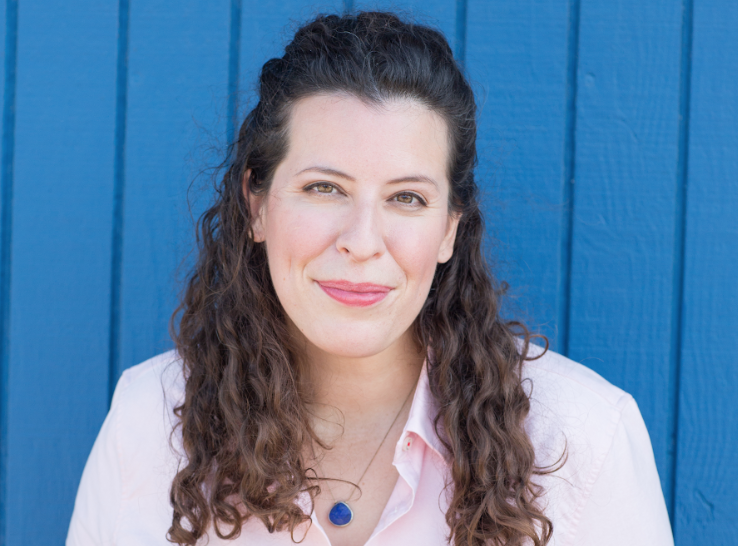What happens when you drain your 401k retirement savings in your 20s
What happens when financial adversity strikes and you don’t have the cash to get you through? Do you raid your retirement savings?
For many young Americans, they do.
Nearly half of millennials have taken early withdrawals from their retirement accounts, according to a recent Bankrate survey. Those between 18 to 34 are more likely to use retirement funds earmarked for home purchases, medical bills, and debt repayments versus older generations.
While the 10% tax penalty on withdrawals typically hurt older borrowers in higher tax brackets more, young people put themselves further behind on saving for retirement when they dip into those funds.
“The long-run effects of an early withdrawal are likely to be much worse for younger investors due to [compounding],” said Brandon Renfro, assistant professor of finance at East Baptist University. “But a lot of people tend to push off thinking about [that].”

‘I filed for bankruptcy’
After 11 years working at the U.S. Department of Defense, Steph Lagana abruptly resigned in July 2016. During her career, she had spent six months in Afghanistan making sure soldiers received proper attention back home. It came with an unexpected consequence: post traumatic stress disorder.
“I felt I didn’t have any other options,” Lagana said, “other than I needed to get out of there.”
She drained the $50,000 in her thrift savings plan, the government equivalent of a 401k, to get through her unemployment, just like nearly a third of those between 18 to 34, according to the Bankrate survey. She also ended her six-year relationship.
“I had to leave the house I was living in with all my belongings behind,” Lagana, now 38, said. Her retirement savings were “going to groceries and paying rent.”
When she started her own coaching business, the expenses piled up. She used the money from her retirement funds and credit cards to support her business. Eventually she found herself with $30,000 worth of taxes and over six-digit outstanding balance on her credit card. She filed for bankruptcy.

“That was a difficult decision in order to get ahead on taxes,” she said. “I made the decision so quickly that if I could go back in time, I’d strategize with family and friends.”
Her business is now profitable. Her mental health has improved and she’s automated her retirement savings, with $5,000 saved and growing. Still, Lagana admits she would do things differently in retrospect.
If she had kept the $50,000 in her retirement account and invested in an index fund that tracked the Standard & Poor’s 500 index, her balance would be $80,119 now. She missed out on more than $30,000 of growth.
“You need to pull in the version of you 30 years from now and have a conversation about what priorities are realistic and what scenarios are realistic,” Lagana said.
‘Living paycheck to paycheck’
Sometimes the blows just keep coming. When Becky Beach was admitted in the hospital for pneumonia in 2012, she received an unwanted call from her employer.
“I was on medical leave without getting paid,” said Beach, now 37. “That’s when I got the call from my manager [to tell me] I was let go.”
With minimal savings and no family support, Beach reached into 401k savings and withdrew the entire $5,000 balance. She was already living paycheck to paycheck and needed money to pay her $4,000 hospital bill.
She’s not alone. One in 4 Americans who took early retirement withdrawals did so for medical bills or other unplanned expenses, according to Bankrate.
“It was so stupid. My dad pressured me to [withdraw] the money,” Beach said. “He had only 25 cents in his bank account.”
Had she kept the money invested in her retirement account – tracking the S&P 500 – her $5,000 would have more than doubled to $11,726 since August 2012. She missed out on over $6,700 in potential returns.
But her experience taught her to stay wise about money and to invest when she has the chance. When her father passed away in 2014, she received $50,000 in inheritance that she invested with the help of a financial adviser. That balance so far has grown to $75,000.
She remains frugal, even after starting a successful business in 2014 that helps mothers start their own businesses from home.
“I still live a minimalist lifestyle,” Beach said. “By saving, I am able to pay off my house, save into a Roth IRA, and have a 529 for my son.”
‘I didn’t roll over anything’
At 25, Wesley Cherisien was switching jobs. He was automatically enrolled in his former employer’s 401(k) plan. When he left the company, he chose to withdraw the $9,000 balance rather than roll it over. His former employer initiated a direct deposit to his checking account, but he wasn’t aware of the penalty that came with the withdrawal.

“They did send me a letter to make a decision about my funds,” Cherisien said. “I didn’t roll over anything.”
Instead, he used the funds for his new home and related expenses, which is not uncommon. About 1 in 6 of those who take out early withdrawals do so for a new home purchase, according to the Bankrate survey, while 1 in 7 do so for home improvement and repairs.
“I bought a house and it went towards my expenses,” Cherisien, now 32, said. “I shouldn’t have gotten new flooring. We didn’t need new flooring.”
He ended up incurring $3,000 in penalties and taxes. He also lost out on growth.
If he had rolled over the $9,000 into a new retirement account in January 2013 in an index fund tracking the S&P 500, his balance would have risen about $17,700. He missed out on $8,700 in returns.
Cherisien regrets how much his balance could have compounded, so he takes steps now to avoid the same scenario. As the owner of a consulting company, he determines what percentage of his monthly income goes to his IRA at the start of each year.
“I also put 10 percent to community service, 20 percent to savings and retirement, and the rest to bills and vacations,” Cherisien said. “I want to focus on building future assets for my daughter.”
Should you withdraw from your retirement?
Life happens, and if you don’t have other savings, your retirement funds may be the only way to get you from emergency to stable. Fortunately, you can avoid the penalties altogether in certain instances.
If you withdraw money from an IRA before 59 1/2, there are special circumstances that are exempt from the 10% early withdrawal penalty, according to the Internal Revenue Service. They are:
Qualified higher education expenses
First-time homebuyers, up to $10,000
Unreimbursed medical expenses
Health insurance premiums paid while unemployed
In the case of a 401k retirement account, you can withdraw early in cases of an “immediate and heavy financial need,” according to the Internal Revenue Service, such as medical care for you or your immediate family, funeral expenses, tuition, and housing expenses. But these early withdrawals are still subject to the 10% tax penalty.
“Given the penalties associated with premature withdrawals, it is more concerning when young investors start dipping into their 401ks for non-retirement expenses,” said James Ciprich, partner at financial firm Regent Atlantic.
Consider a 401k loan, instead
Taking out a 401k loan may be a better bet because you must pay yourself back the full borrowed amount – plus interest. That can help compensate for what you miss out on compounding.
“There may be some instances where a loan can provide short-term liquidity when other sources are not available,” Ciprich said.
The maximum loan amount is 50% of your vested account balance, or $50,000, whichever is less. You can use the loan for qualified higher education expenses, first-time home purchases up to $10,000, health insurance premiums paid during a period of unemployment, and in some cases of divorce.
“Loans are pretty easy to access,” Renfro said. “It’s your money, so there isn’t any credit check or third party to involve.”
But make sure you’re in a position to pay back the entire loan. If you change jobs, you’re on the hook to pay back the outstanding balance or roll it over by the due date of your tax return for the year the withdrawal occurs, including extensions. If you don’t, you could be charged the 10% tax penalty.
Dhara is a writer for Cashay. Follow her on Twitter @dsinghx.
Read more information and tips in our 401k section
Read more personal finance information, news, and tips on Cashay




